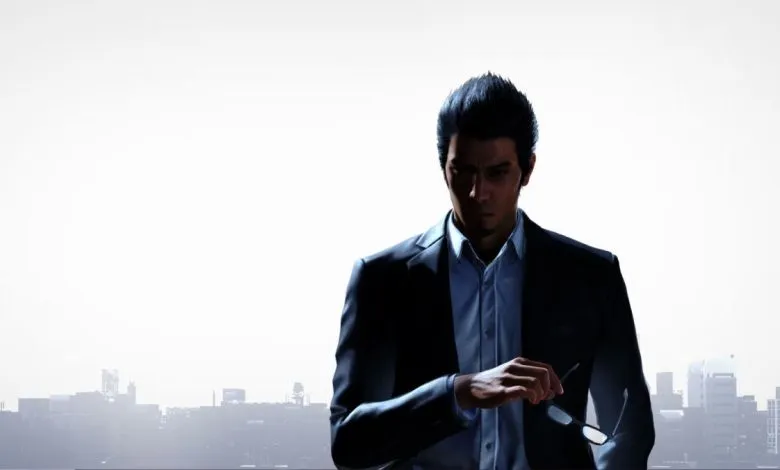
LIKE A DRAGON GAIDEN: THE MAN WHO ERASED HIS NAME
The existence of Like A Dragon Gaiden: The Man Who Erased His Name was a bit unexpected. After the finale of Yakuza 6: The Song of Life and the introduction of the new main character, Ichiban Kasuga, in the last "regular" episode of the series, Yakuza: Like A Dragon, it seemed that the curtain had finally come down on Kazuma Kiryu as the main character. However, the people behind Ryu Ga Gotoku Studio felt that there was a bit of a gap in the storyline between the events of Yakuza 6 and Yakuza 7, and thought it was worth telling the audience. So what happened to Kiryu and we arrived at (whatever) role he played in Yakuza: Like A Dragon, a story that, originally, was planned to be a DLC pack.
However, probably for commercial reasons, Ryo Ga Gotoku preferred to release it as a standalone title, leaving aside the turn-based combat system implemented in the last Yakuza and bringing back the real-time brawling that made it famous. A decision that is a double-edged sword, both because the story doesn't contain enough "depth" to justify a 30-40 hour adventure (as Yakuza usually lasts), but automatically becomes more condensed, and because it makes the most of already proven mechanics, composing a familiar experience that is described as "one of the same".
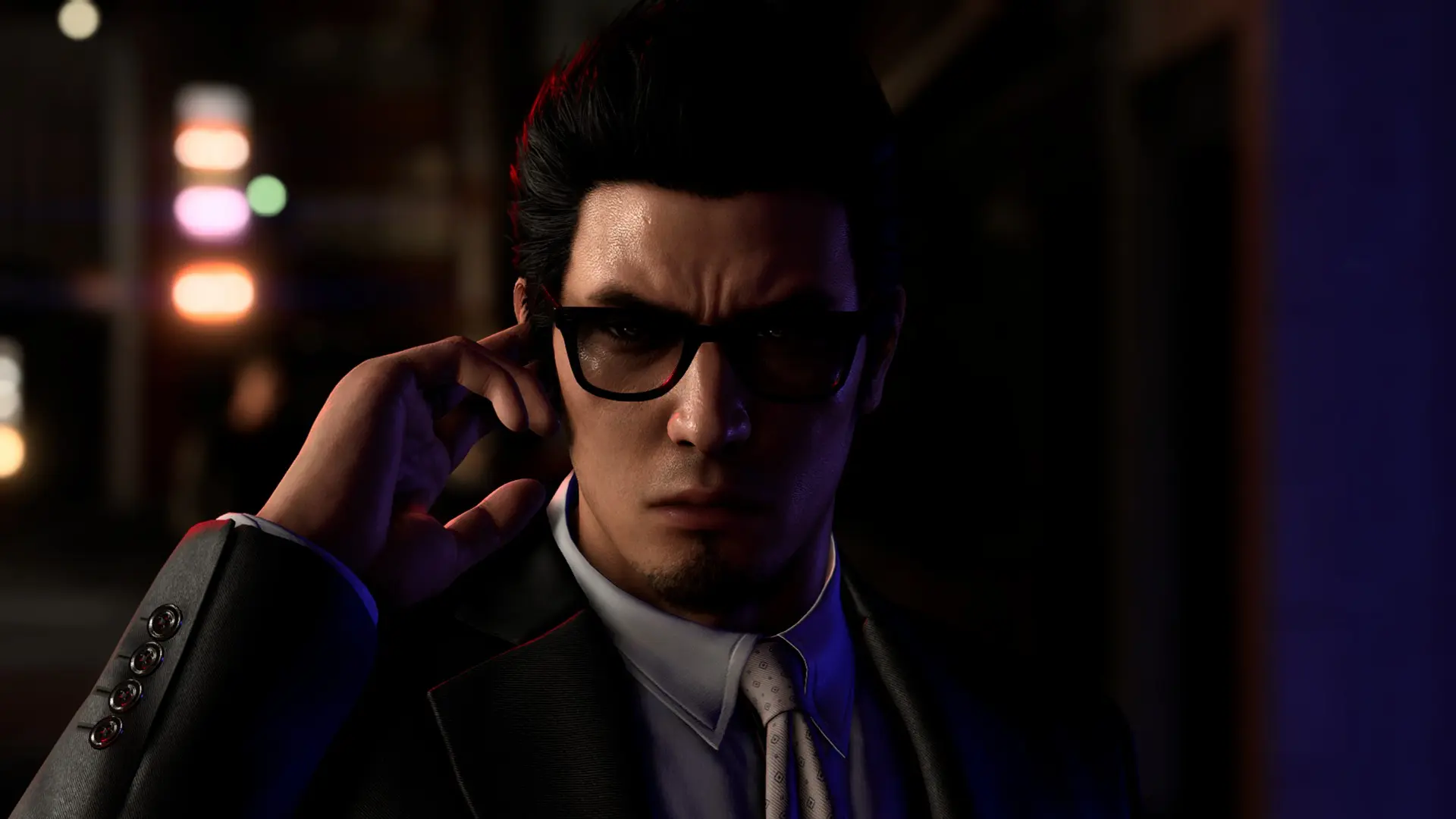
It is worth mentioning, however, that these "more of the same" evoke the same strong emotions that most (if not all) of the previous episodes do. In particular, if you're one of those who have been through all the games in the series and are able to recognize all of the earlier events described in TMWEHN, it's hard to avoid rolling a tear during the game's finale. Consequently, the game is clearly aimed at Yakuza devotees, as a newcomer, while they can quite easily enjoy the story, will by no means understand the emotional charge created by the definitive finale (?) of Kiryu Kazuma's epic.
So, what happened to Kiryu after the events of The Song of Life?(SPOILER ALERT) After he "died" to protect the children of the orphanage, Kiryu works as an undercover agent for the Daidoji organization, which is so powerful that it holds both high government officials and chairmen of the once powerful yakuza. That organization is the one that faked Kiryu's death for the rest of the world, meaning that he is forced to obey whatever they ask of him, and for security reasons, he uses the alias Joryu, with very few people knowing his true identity.
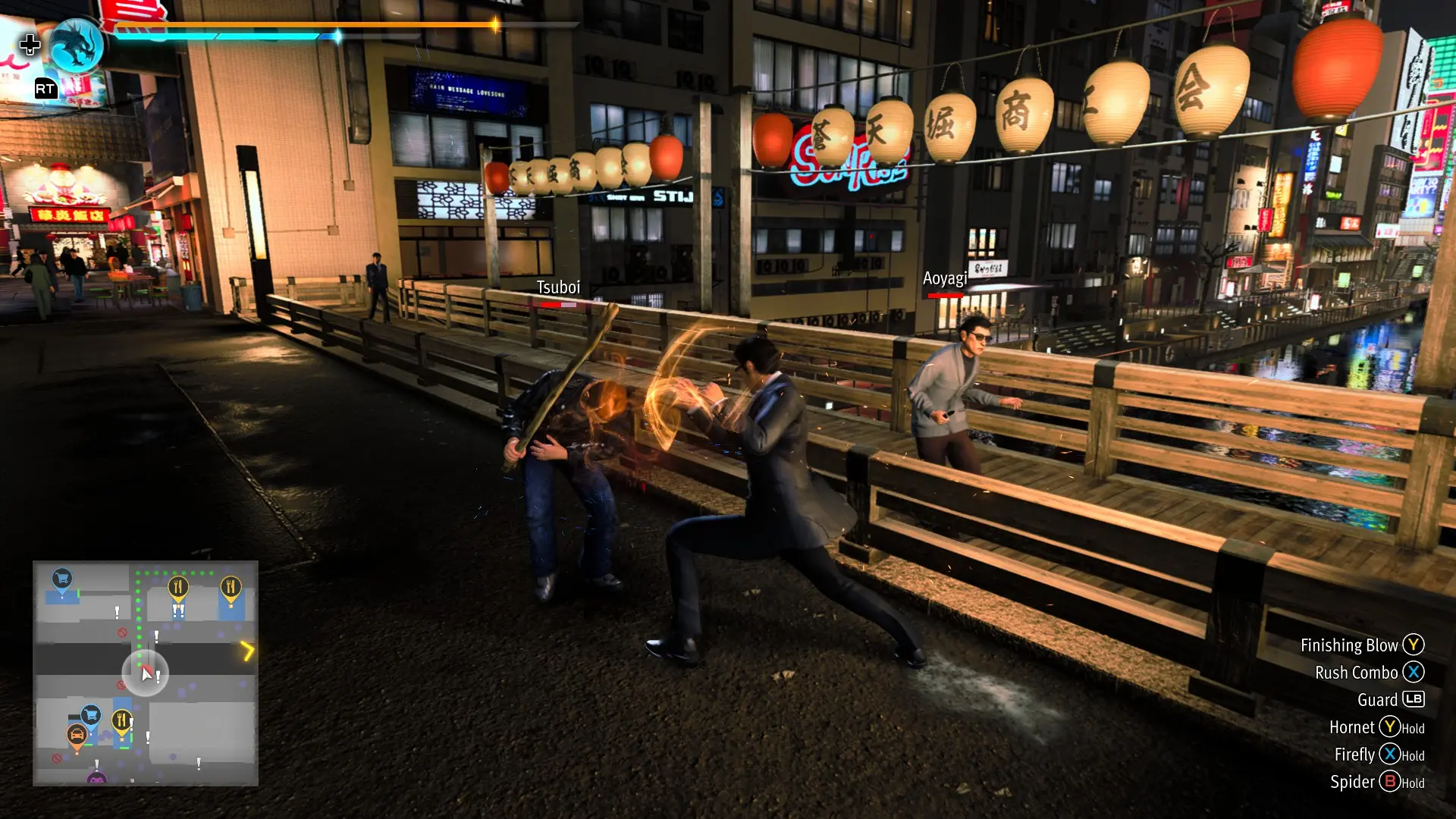
Which of course, as you can imagine, won't last long, especially when several "suspicious" events lead to the dissolution of the Tojo Clan and Omi Alliance, which was the main component of the story of Yakuza: Like A Dragon. So, Kiryu/Joryu is once again embroiled in a case that involves conspiracies, betrayals, plenty of blood and of course, endless punches. It goes without saying that we won't go into any further revelations about the plot, but our impressions are that the plot has been "stretched" quite a bit to justify its standalone existence, but it's still quite interesting thanks to its twists and turns and the usual imaginative writing of writers Ryu Ga Gotoku.
After all, the main story may last around 12 to 14 hours, divided into just five chapters, but the content of the game is, once again, huge, with the common denominator always being its combat system. So while the brawling system may lack the variety of the older Yakuza, it once again brings a fun addition to the table. In essence, there are two styles: the Yakuza (which is Kazuma Kiryu's classic "Dragon of Dojima" style) and the newly introduced Agent, which may feature reduced hit power, but is replaced by the use of some gadgets that can make a difference. In particular, the first one we get, the spider cord, is ideal for crowd-control and more or less turns Kiryu/Joryu into a little...spiderman. Besides the (perhaps overpowered) spider cord, there are other equally interesting gadgets, such as the explosive cigarette or drones that harass, like insects, opponents and distract them.
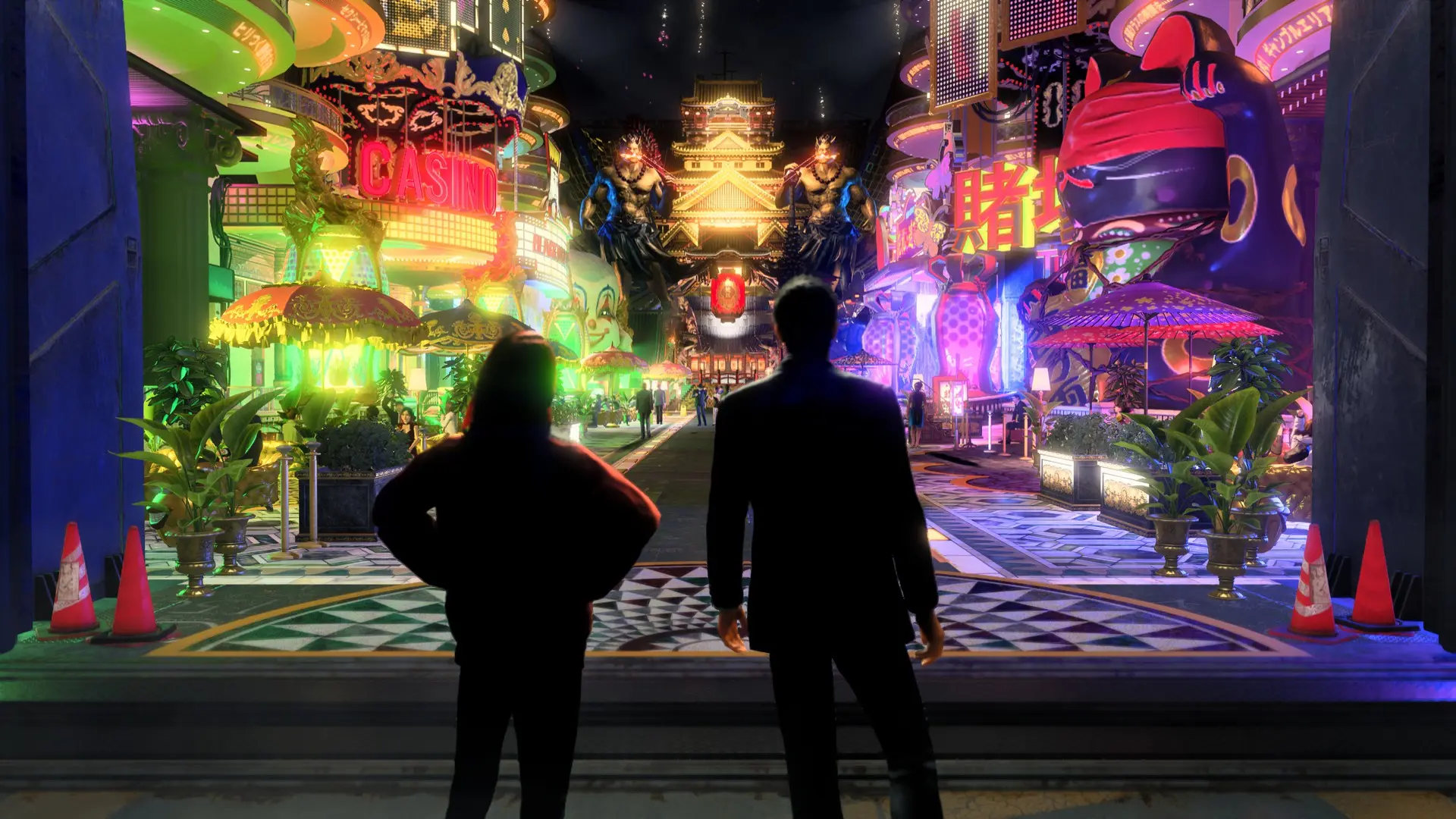
Without being a game-changer, the gadgets are a lot of fun, and the fact that we can easily switch between styles depending on the opponent in front of us amounts to another thoughtful combat system that gives the player a lot of room to experiment. On top of that, TMWEHN offers plenty of opportunities to practice one's martial art, on the one hand with the dozens of battles to be won in the regular campaign and on the other hand with the existence of the arena, which has been highly enriched, creating battles that literally flood the screen with participants.
Of course, the arena is only one part of the side activities available in the game. Another big part are the Akame Missions, in practice long substories, but which yield large amounts of money and Akame points, which are necessary to upgrade Kiryu/Joryu. Therefore, in order to get Kiryu/Joryu to his maximum level of potential, it will take a lot of grinding in terms of side missions, but this doesn't become as tedious as it sounds, because many of them are funny and/or interesting, and can be challenging in terms of difficulty.
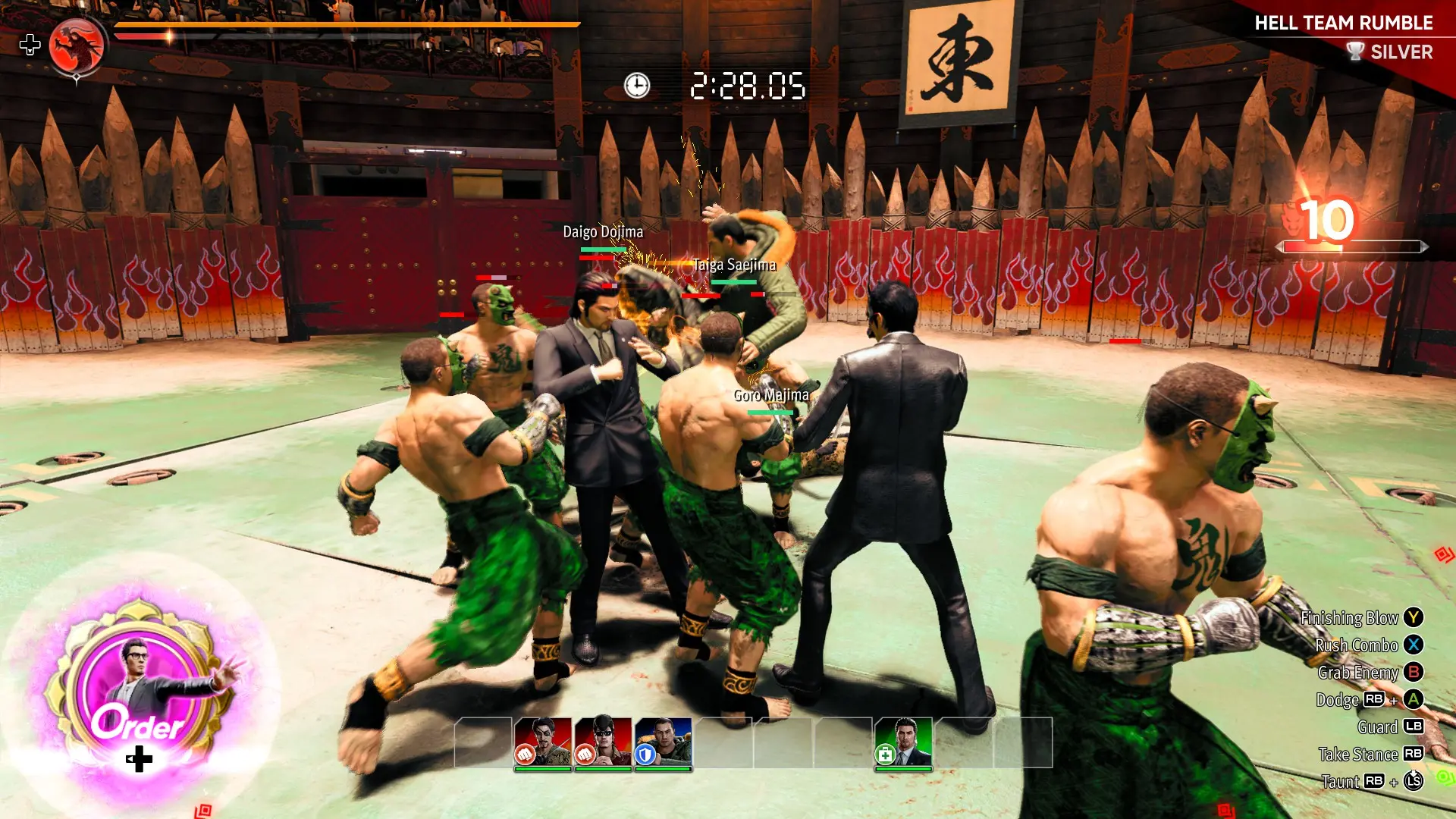
Apart from the aforementioned, it goes without saying that TMWEHN features the much-loved mini-games, such as various Sega coin-ops, billiards, karaoke, golf, cabaret club (with very... "live" performances), and the incredibly addictive pocket circuit. In short, just about everything a "regular" Yakuza title offers can be found here, with Ryu Ga Gotoku simply offering another dose of exactly what its fans want, at the lowest possible cost.
This is made abundantly clear by the game's graphics, which are a generation behind Yakuza: Like A Dragon, and the fact that 95% of TMWEHN takes place in the city of Sotenbori means that the exact same assets we've seen many times in previous Yakuza titles are reused. The lack of an English voice-over, which personally didn't bother me because I never choose it even when it's there, further illustrates the relatively low budget allocated to the game, which certainly ended up in the upcoming Like A Dragon: Infinite Wealth, due in late January 2024.

Even so, with its limitations and "transitional" nature, Like A Dragon Gaiden: The Man Who Erased His Name is a decent episode, especially for fans of the series, and well worth your time until Infinite Wealth.
Many thanks to Zegetron for providing the review code.
RATING -76%
76%
Remember My Name
A new, "small", adventure for Kazuma Kiryu, but one that remains outstandingly entertaining for the Man Who Erased His Name...






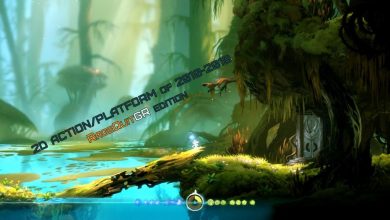

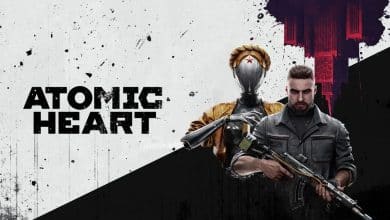



data-trpgettextoriginal=2 comments